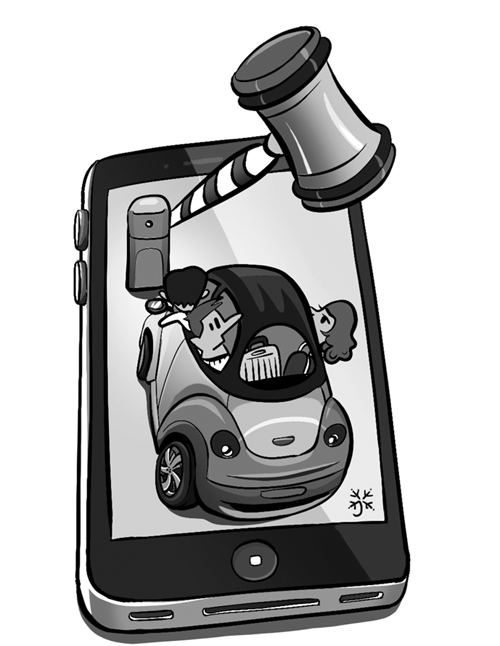
For those who cannot secure a train ticket during next year's Spring Festival holiday, a time for family reunion, the app-based car-sharing service could be a convenient alternative. But since the business remains legally ambiguous, lawmakers should clarify the status of this cost-effective and environmentally friendly way of transportation as soon as possible.
Carpooling not only facilitates long-distance travel for people who don't have a car and can't get a train ticket during peak travel seasons; it also helps people commute within cities as they look for more cost-effective and eco-friendly options. Mobile phone apps have boosted car-pool business and led to the fast expansion of domestic operator Didi Kuaidi and US-based Uber, the two major players in China. For instance, Didi Kuaidi reportedly has operations in nearly 200 cities serving millions of passengers across the country.
But despite its success, most cities have not yet legalized carpools or app-based taxi services, creating uncertainties and risks for operators and passengers both. Since car-sharing involves payment of fees in some places, regulators tend to call it the "black cab" service because the existing laws and regulations stipulate that private cars should not be used as commercial vehicles. And law enforcers have reportedly seized many private cars for providing paid car-sharing service.
As the car-sharing service benefits society as a whole, while making the use of vehicles more efficient, reducing pollution and easing traffic jams, the authorities have no reason to discourage its healthy growth.
There is fear, however, that car-sharing and app-based taxis can be risky for passengers. For example, in the absence of insurance cover, passengers won't be able to claim compensation in case of accidents, which will lead to disputes between drivers or car owners and passengers. Such problems, however, can be solved if the authorities compel those operating such services to buy insurance and drivers to sign formal contracts with passengers, as well as check the records of drivers.
